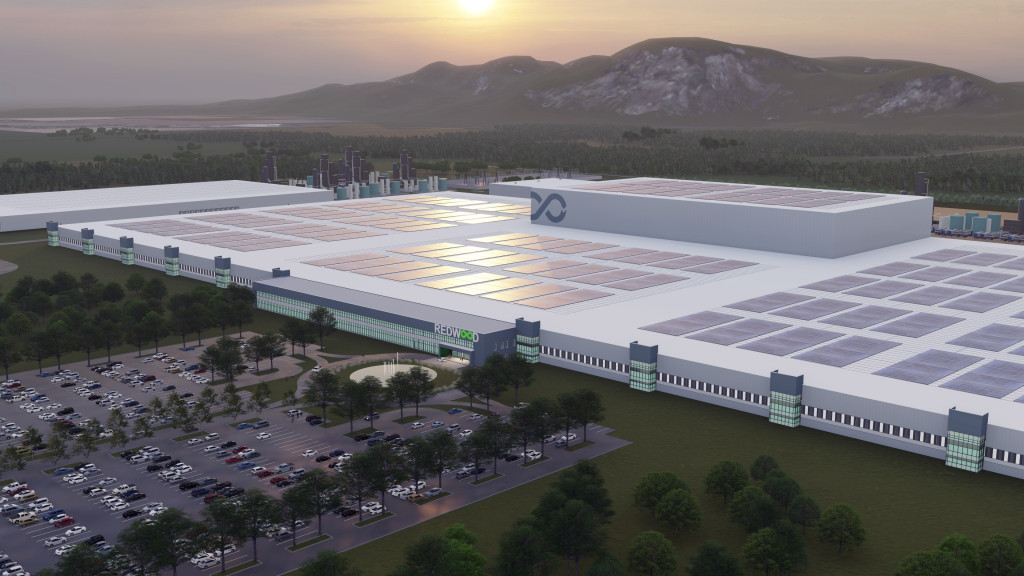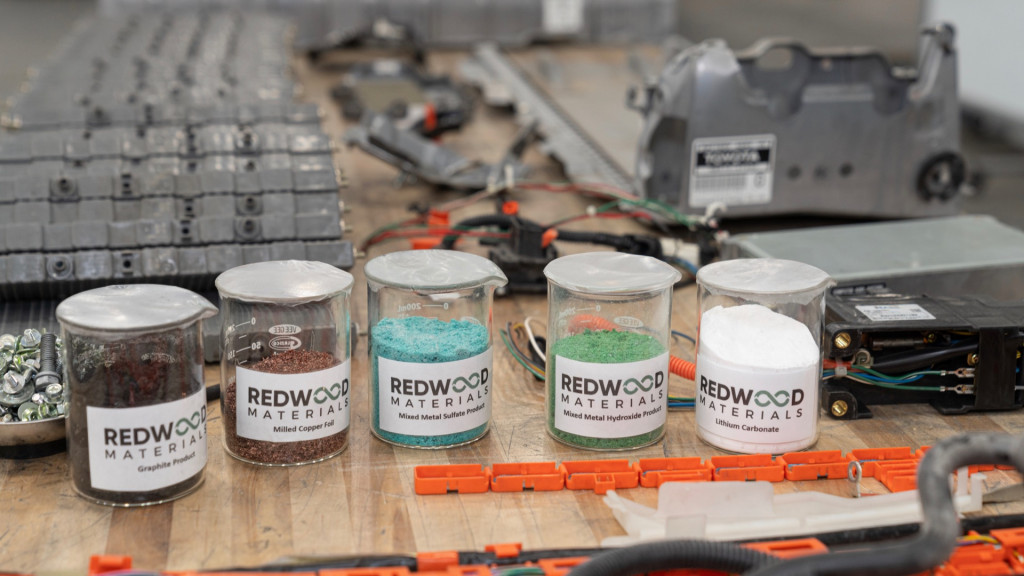Battery-recycling firm Redwood Materials may soon received a $2 billion loan from the U.S. Department of Energy (DOE) to expand its operations.
The DOE on Thursday made a conditional commitment for the loan, which would go toward a $3.5 billion recycling and remanufacturing facility in Nevada, according to a Reuters report.
The loan, which must still be finalized, is a step toward the Biden administration's goal of building up the domestic EV supply chain. Redwood will play an "outsized role in bringing the battery supply chain home," energy secretary Jennifer Granholm said in an interview with Reuters.

Rendering of proposed Redwood Materials cathode factory
The loan comes from the Advanced Technology Vehicles Manufacturing (ATVM) program, which once provided funding to Tesla and other automakers for EV-related projects. This follows last year's conditional commitment that General Motors' Ultium Cells LLC joint venture with LG would receive the first ATVM loan in a decade. That loan was finalized in December.
Redwood was founded in 2017 by former Tesla CTO JB Straubel, who told Reuters that the company plans to draw down the first loan tranche later this year to fund scaling up the Nevada facility, located near Reno in the northern part of the state.

Toyota and Redwood Materials battery recycling
In addition to the Nevada facility, which Redwood claims is already processing some copper anode materials, the company plans to open a facility near Charleston, South Carolina, also at an estimated cost of $3.5 billion. Each site has an initial planned capacity of 100 gigawatt-hours of battery electrode materials, with the South Carolina facility, expected to be about two years behind the Nevada site, reportedly slated for further expansion once completed.
As far as customers, Redwood has already partnered with Ford, Toyota, and the Volkswagen Group's Audi and VW brands, among others.
According to a report last year, the market for recycling used EV batteries won't really heat up until 2030, in part because recyclers won't have a critical mass of battery packs to use as raw material until more EVs are sold and cycle off the road. A DOE loan could give Redwood some runway until that point.












